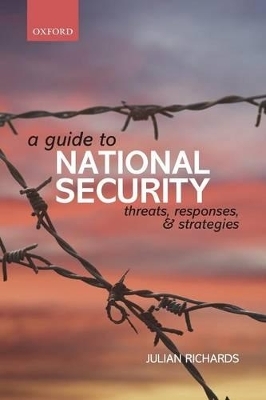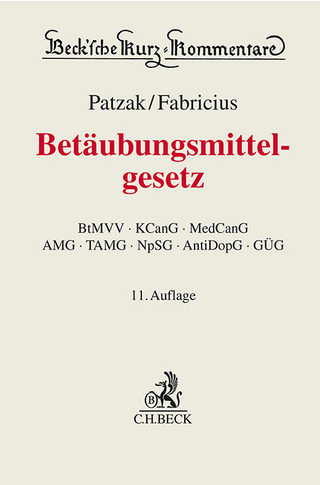
A Guide to National Security
Threats, Responses and Strategies
Seiten
2012
Oxford University Press (Verlag)
978-0-19-965506-9 (ISBN)
Oxford University Press (Verlag)
978-0-19-965506-9 (ISBN)
This book offers an analysis of the threats facing the UK and its policy responses, presented under the framework of the Government's National Security Strategy. It contains opinions from leading figures across relevant agencies, including the National Security Council and members of ACPO, as well as case studies.
A Guide to National Security offers an analysis of the threats and policy responses facing the UK, presented within the framework of the Government's National Security Strategy and the Strategic Defence and Security Review. It explores the processes and developments which have shaped the transformation of national security over the last three decades, and critically examines the processes of politicisation and securitisation that have delivered the new strategic vision.
Presented in three parts, the book has taken one of the key recommendations from the National Security Strategy - collaboration between police and national security agencies - and used this as both the viewpoint from which to assess the current state of play regarding the UK's national security, as well as the approach to identifying future threats and creating policies and tactics to deal with them. Part One: Threats sets the scene for the current status of national security in the UK and relates this to the rest of the world, before moving on to the myriad of possible threats facing governments and intelligence services, from organised crime and terrorism to cyber-threats and failed states. Part Two: Responses looks at the interaction between governments and other agencies in response to a threat, how that framework functions and is organized, as well as the action or response taken. Finally, Part Three: Strategies offers a range of considerations for the future, including making a case for military restructuring, discussing domestic policies regarding radicalisation and other internal security issues, and the building of partnerships with the EU and the rest of the world, as well as within current international organizations, such as the UN and NATO. Throughout, the book presents opinions from leading figures across the agencies, including the National Security Council and members of ACPO, as well as case studies and suggestions for further investigation.
This book provides a number of fascinating and critical points for those interested in the UK's own national security organization, from those working in intelligence, counter-terrorism and organised crime within the police, staff within the national intelligence agencies, and policy advisers and officials. However, the contemporary era of globalisation means that it also has resonances for anyone involved in such issues across the Western world and beyond.
A Guide to National Security offers an analysis of the threats and policy responses facing the UK, presented within the framework of the Government's National Security Strategy and the Strategic Defence and Security Review. It explores the processes and developments which have shaped the transformation of national security over the last three decades, and critically examines the processes of politicisation and securitisation that have delivered the new strategic vision.
Presented in three parts, the book has taken one of the key recommendations from the National Security Strategy - collaboration between police and national security agencies - and used this as both the viewpoint from which to assess the current state of play regarding the UK's national security, as well as the approach to identifying future threats and creating policies and tactics to deal with them. Part One: Threats sets the scene for the current status of national security in the UK and relates this to the rest of the world, before moving on to the myriad of possible threats facing governments and intelligence services, from organised crime and terrorism to cyber-threats and failed states. Part Two: Responses looks at the interaction between governments and other agencies in response to a threat, how that framework functions and is organized, as well as the action or response taken. Finally, Part Three: Strategies offers a range of considerations for the future, including making a case for military restructuring, discussing domestic policies regarding radicalisation and other internal security issues, and the building of partnerships with the EU and the rest of the world, as well as within current international organizations, such as the UN and NATO. Throughout, the book presents opinions from leading figures across the agencies, including the National Security Council and members of ACPO, as well as case studies and suggestions for further investigation.
This book provides a number of fascinating and critical points for those interested in the UK's own national security organization, from those working in intelligence, counter-terrorism and organised crime within the police, staff within the national intelligence agencies, and policy advisers and officials. However, the contemporary era of globalisation means that it also has resonances for anyone involved in such issues across the Western world and beyond.
Dr Julian Richards is Co-Director at the Centre for Security and Intelligence Studies at the University of Buckingham, and was previously a researcher at Brunel University's Centre for Intelligence and Security Studies. Prior to that, Dr Richards worked for 16 years in intelligence, counter-terrorism analysis, policy formation and training. In 1993, he was awarded a PhD from Cambridge University for his thesis on nationalism in Pakistan, and has since written numerous papers on terrorism, counter-terrorism and security. He is a regular facilitator on joint agency training programmes in the UK on intelligence analysis and terrorism.
PART ONE - THREATS; PART TWO - RESPONSES; PART THREE - STRATEGIES
| Zusatzinfo | 2 illustrations |
|---|---|
| Verlagsort | Oxford |
| Sprache | englisch |
| Maße | 235 x 156 mm |
| Gewicht | 324 g |
| Themenwelt | Recht / Steuern ► EU / Internationales Recht |
| Recht / Steuern ► Strafrecht ► Besonderes Strafrecht | |
| Recht / Steuern ► Strafrecht ► Strafverfahrensrecht | |
| Sozialwissenschaften ► Politik / Verwaltung ► Europäische / Internationale Politik | |
| Sozialwissenschaften ► Politik / Verwaltung ► Staat / Verwaltung | |
| ISBN-10 | 0-19-965506-5 / 0199655065 |
| ISBN-13 | 978-0-19-965506-9 / 9780199655069 |
| Zustand | Neuware |
| Haben Sie eine Frage zum Produkt? |
Mehr entdecken
aus dem Bereich
aus dem Bereich
Delikte gegen die Person und die Allgemeinheit
Buch | Softcover (2023)
C.F. Müller (Verlag)
27,00 €
BtMVV, KCanG, MedCanG, AMG, TAMG, NpSG, AntiDopG, GÜG
Buch | Hardcover (2024)
C.H.Beck (Verlag)
149,00 €


